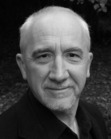
I am sometimes appalled to hear educators declare that teaching the classics of English literature in our schools should be abandoned because they hold no relevance for modern children. I firmly believe that anyone who truly wishes to understand the development of language and writing needs to possess a firm grasp of of our literary heritage. The famous quotation from Sir Isaac Newton to Robert Hooke acknowledging his indebtedness to others, “If I have seen further it is by standing on the shoulders of giants,” can be applied to any discipline just as easily as science. There would be no detective/thriller genre if Wilkie Collins hadn’t created books like
The Woman in White and
The Moonstone (just imagine what prime-time TV would ever have done then, even more reality and game shows perhaps?), without H Rider Haggard there would be no Lost World genre (
Tarzan would still be apeing about in the jungle and there would be no
Jurassic Park!). If John Polidori’s
The Vampyre hadn’t influenced Bram Stoker, then there may never have been a
Dracula, and Stephen King wouldn’t have written
Salem’s Lot. The whole Fantasy genre basically stems from the pen of one man, J R R Tolkien, who had himself been inspired by the Norse myths. On a personal note, I most definitely couldn’t have written
Niedermayer & Hart or
Roadrage without following the bright trails that lead back to their many rich sources. Anyone who claims total originality is I think deluding themselves. However, there is a big difference between following themes or traditions and direct, deliberate plagiarism.
I’ve just read Mary Shelley’s
Frankenstein or, the Modern Prometheus, for the first time (published 1818 - and acknowledging its debt to Greek mythology in the title). It is of course the original mad scientist scenario that has since become a stalwart of just about every form of popular culture. The story, then not a hundred years old, first made it to the cinema screens as far back as 1910 - we just love to be horrified! The book might be loosely classified as science fiction too, and its influence on art and literature has been incredibly far-reaching. As a novel it most certainly deserves its classic status. The book’s basic premise of man taking on the role of God has cross-bred with other genres: combine a mad scientist and lost world theme and you get
Jurassic Park, mix mad science that creates computers who themselves create horrific human-like machines and you have the
Terminator series, perhaps even Tolkien had something of the book in mind when he has Saruman create the Uruk-Hai.
Mary Shelley was born Mary Godwin in 1797, the daughter of the feminist writer Mary Wollstonecraft and writer and journalist William Godwin. Her mother died soon after she was born, and Mary received no formal education and doesn’t seem to have taken very well to her step-mother. She began an affair with the poet Percy Bysshe Shelley when still a teenager and eloped with him to the (then war-torn) Continent. She began writing Frankenstein in 1816 whilst holidaying on Lake Geneva ; by this time she had lost her first baby and had given birth to a son (sadly not to survive either). They were assailed by weeks of rain, and their chum Lord Byron suggested to the group of friends present, that they each compose a horror story to pass the time. The rest is, as they say, history.
The story is well written and has withstood the test of time. The monster of her tale undertakes to do many cruel and vindictive acts in revenge upon his creator Frankenstein; yet it is the monster who is given the last word in the novel by Shelley, and it is for him that we feel the deepest sympathy. Frankenstein never acknowledges his responsibility as creator, and simply abandons his creation which he finds too abhorrent to even gaze upon. The monster subsequently wanders the world like a lost child receiving only cruelty, unkindness and hatred from mankind who he yearns in his heart to join. Is the monster in this story the creature, or the human ego?
We stand at a point in time where such matters are no longer far-fetched. Whilst our governments can attempt to reassure us that any genetic experiments are only carried out with the utmost care and with every attention paid to what is both morally and ethically right ... we know too that once the genie is out of the bottle ...
I wrote a blog some time back that was based on the National Theatre’s production of
Frankenstein.
And on a lighter note - one of my favourite comedy films,
Young Frankenstein.
 newest »
newest »
 newest »
newest »
 I went to a Welsh Grammar school in the late sixties and had two fantastic English teachers. By the time we did GCE we'd read some Shakespeare, Dickens, Oscar Wilde, Homer's Odyssey, Wordsworth and inevitably lots of Dylan Thomas. There were lots of other writers/poets we covered too - I recall being very taken by a book called A Pattern of Islands by Arthur Grimble and Gerrald Durrel's My Family and Other Animals.
I went to a Welsh Grammar school in the late sixties and had two fantastic English teachers. By the time we did GCE we'd read some Shakespeare, Dickens, Oscar Wilde, Homer's Odyssey, Wordsworth and inevitably lots of Dylan Thomas. There were lots of other writers/poets we covered too - I recall being very taken by a book called A Pattern of Islands by Arthur Grimble and Gerrald Durrel's My Family and Other Animals.  P.S. wife just pointed out that although I went to a good school - still can't spell Gerald Durrell!
P.S. wife just pointed out that although I went to a good school - still can't spell Gerald Durrell!

 I am sometimes appalled to hear educators declare that teaching the classics of English literature in our schools should be abandoned because they hold no relevance for modern children. I firmly believe that anyone who truly wishes to understand the development of language and writing needs to possess a firm grasp of of our literary heritage. The famous quotation from Sir Isaac Newton to Robert Hooke acknowledging his indebtedness to others, “If I have seen further it is by standing on the shoulders of giants,” can be applied to any discipline just as easily as science. There would be no detective/thriller genre if Wilkie Collins hadn’t created books like The Woman in White and The Moonstone (just imagine what prime-time TV would ever have done then, even more reality and game shows perhaps?), without H Rider Haggard there would be no Lost World genre (Tarzan would still be apeing about in the jungle and there would be no Jurassic Park!). If John Polidori’s The Vampyre hadn’t influenced Bram Stoker, then there may never have been a Dracula, and Stephen King wouldn’t have written Salem’s Lot. The whole Fantasy genre basically stems from the pen of one man, J R R Tolkien, who had himself been inspired by the Norse myths. On a personal note, I most definitely couldn’t have written Niedermayer & Hart or Roadrage without following the bright trails that lead back to their many rich sources. Anyone who claims total originality is I think deluding themselves. However, there is a big difference between following themes or traditions and direct, deliberate plagiarism.
I am sometimes appalled to hear educators declare that teaching the classics of English literature in our schools should be abandoned because they hold no relevance for modern children. I firmly believe that anyone who truly wishes to understand the development of language and writing needs to possess a firm grasp of of our literary heritage. The famous quotation from Sir Isaac Newton to Robert Hooke acknowledging his indebtedness to others, “If I have seen further it is by standing on the shoulders of giants,” can be applied to any discipline just as easily as science. There would be no detective/thriller genre if Wilkie Collins hadn’t created books like The Woman in White and The Moonstone (just imagine what prime-time TV would ever have done then, even more reality and game shows perhaps?), without H Rider Haggard there would be no Lost World genre (Tarzan would still be apeing about in the jungle and there would be no Jurassic Park!). If John Polidori’s The Vampyre hadn’t influenced Bram Stoker, then there may never have been a Dracula, and Stephen King wouldn’t have written Salem’s Lot. The whole Fantasy genre basically stems from the pen of one man, J R R Tolkien, who had himself been inspired by the Norse myths. On a personal note, I most definitely couldn’t have written Niedermayer & Hart or Roadrage without following the bright trails that lead back to their many rich sources. Anyone who claims total originality is I think deluding themselves. However, there is a big difference between following themes or traditions and direct, deliberate plagiarism.


I don't remember studying much in the way of old classics at school, although read voraciously at home - no change there then! I think we read Of Mice And Men and Goodnight Mr Chips. I do remember loving a term of World War One poetry though and can still quote a little of Wilfrid Owen.